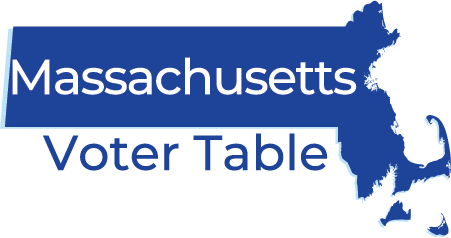By
With Tuesday’s preliminary elections barely in the rearview mirror, and a general election just weeks away, voting rights advocates were on Beacon Hill pressing the case for a suite of updates to the commonwealth’s election laws that they say “will remove long-standing barriers” to the ballot box.
Legislation dubbed the ”Voting ACCESS Act,” would authorize long-sought same-day registration, uniform mail and absentee voting forms and ballots, and increased access for voters living with disabilities, among other reforms.
Advocates pressed the case for the legislation during Wednesday’s meeting of the Joint Committee on Election Laws, arguing that lawmakers need to have the changes in place before the 2024 presidential election.
“Our work to make democracy more accessible remains unfinished,” Common Cause Massachusetts Executive Director Geoff Foster said in a statement.
The bill “will remove long-standing barriers to voting by enacting same day registration, disability voting oversight, and other reforms to make voting easier for Bay Staters,” he continued.
Right now, 22 other states allow same-day voter registration, which allow any qualified state resident to register and cast their ballot at the same time, according to the National Conference of State Legislatures.
Of those states, 20 states and the District of Columbia, offer Election Day registration, which means voters can register and vote on Election Day — and, often, during the early voting period, according to NCSL.
Two states, Montana and North Carolina, allow same-day registration during a portion of the early voting period, but not on Election Day, according to NCSL.
“Same Day Voter Registration is a critical step towards eliminating barriers to voting, which disproportionately affect voters of color and low income voters,” Shanique Spalding, the executive director of the Massachusetts Voter Table, an advocacy group devoted to addressing racial injustice and economic inequality, said in a statement.
By adopting the legislation, Massachusetts will “send a clear message that every eligible citizen’s voice matters and deserves to be heard,” Spalding continued.
According to an analysis provided by the advocacy groups, the legislation sponsored by state Senate Majority Leader Cynthia Creem, D-Norfolk/Middlesex, also would:
Decouple voter registration from the municipal Census, which would, if approved, ensure that not responding to the municipal census will no longer result in being dropped from the active voter rolls. (A companion House bill has been filed by Rep. Frank Moran, D-Essex)
Ensure uniform mail and absentee voting forms and ballots, which would, if approved, reduce costs and workload for local election officials, and reduce confusion from voters. (A companion House bill also has been filed by Rep. Shirley Arriaga, D-Hampden)
Strengthen accessible polling location oversight,which would, if approved, require the Secretary of State to inspect all voting sites at least once every four years to ensure they comply with federal and state disability accessibility laws. (A companion bill also has been filed by by Rep. Kay Khan, D-Middlesex)
Last year, former Gov. Charlie Baker signed a suite of election reforms into law. Those included the authorization of mail-in balloting in most elections; an extension of the state’s voter registration deadline from 20 days before an election to 10 days, and automatic voter registration. The reforms notably did not include same-day registration.
The bill now before lawmakers would build on that earlier progress, Pattye Comfort, the executive director of the Massachusetts League of Women Voters, said.
“These reforms will ensure eligible citizens can vote and will reduce problems at the polls on Election Day,” Comfort said.
Acknowledging the current political calendar, one advocate said the time is right for lawmakers to approve the new reforms.
“We’re in the thick of primary season, with the future of local government on the line in communities around the Commonwealth. There’s no more pressing time to call for greater access to the ballot,” Traci Griffith, the racial justice program director at the ACLU of Massachusetts, said.
“Every barrier that keeps people of color, renters, seniors, people with disabilities – or, for that matter, any qualified voter – from casting their vote is a barrier that urgently needs to be dismantled. This is what democracy looks like,” Griffith said.
